








The Old Governor’s Mansion’s shadowy past
Jaylen Mahayag Staff Writer
As Halloween draws near, Milledgeville’s Old Governor’s Mansion is preparing to bring history to life with its popular “Death After Dark” tours.
Scheduled for Friday, Oct. 25, at 6, 7 and 8 p.m., these exclusive tours offer visitors a glimpse into the 19th-century customs surrounding death and mourning. The mansion, which has witnessed four confirmed deaths within its walls, provides a fitting backdrop for this eerie experience.
Delaney Derry Opinion Editor
Have you ever had a nightmare so real and vivid that you woke up scared and had to make sure there were no monsters under your bed? Or maybe you’ve been in a haunted house or watched a scary movie that terrified you so badly that you slept with the lights on for a week?
It’s no secret that many people have an infatuation with horror films, and with Halloween just around the corner, spooky media is all that’s on anyone’s mind. People who like scary movies love the thrill that it gives them with a bowl of popcorn, a blanket to hide under and the lights turned down low.
“The biochemical inside our bodies also changes when we consume horror,” said Haiyang Yang and
“Let’s
The economics behind your vote
Bryan Cohen Contributing Writer
With the presidential election that is now just weeks from being determined, Christopher Clark, a GCSU economics professor, presented a fiscal policy seminar called “Let’s Get Fiscal.” Clark aims to help spread awareness and inform voters of the policies of the candidates they are voting for.
As a mixed-market economic structure, political leaders’ policies can completely turn the country’s financial welfare on its head.
“10% to 30% [of voters] less likely to be aware of news stories unfavorable to their preferred po-
Kuangjie Zhang, writers for the Harvard Business Review. “Fright can trigger the release of adrenaline, resulting in heightened sensations and surging energy.”
However, what if those hypothetical situations turned into a reality, and your traumatic fantasy of running away from an ax murderer or being haunted by a supernatural doll became real?
Think about it. What’s your favorite scary movie? We all know iconic horror movies like “Scream” or “Halloween.” They have some pretty gruesome fatalities, and you lose characters along the way. Sometimes, the main protagonist makes it out in the end just in time against all odds. What if you were in that situation? Would you survive that horror movie?
“No, because if I was in a life or death situation, my

litical party,”said Kara Baskin, a journalist for the Boston Globe.
“I think that the most important thing a voter can be is informed,” said Christopher Clark, a professor of economics.
With such an important decision coming up and the information provided in the vast amount of studies that voters are showing up more informed, Clark’s task of informing the people of GCSU is a big one.
“I don’t care who you vote for,” Clark said. “That’s the beauty of this country: that there’s freedom to choose or do whatever you want to do.”
“Our Death After Dark tours have become a beloved tradition over the years,” said Danielle Schulze, interim director of historic museums and curator of education and public engagement at the Mansion. “During this specialty tour, we have the opportunity to
share a history that we don’t often get to explore throughout the year and honor the people who died in the mansion by telling their stories.” Docents dressed in traditional mourning attire guide guests through these rituals, shedding light on how death was viewed, honored and feared in a time before modern medicine and secularized funerals.

fight or flight reaction would just not kick in,” said Kennedy Welker, a junior English major. “I would just accept my fate because I would panic, so I would know that I just wouldn’t make it because I wouldn’t fight back.”
Hudson Taylor Staff Writer
The 2024 college football season is nearly halfway done, and the race for the Heisman Trophy, the award given annually to the best player in college football, is starting to heat up. In recent years, going into week nine, most people would have a good idea of who was the front-runner for this award. This year, it will likely come down to who can come out hot at the end of the season.
Candidates such as Cam Ward for the University of Miami,
Ashton Jeanty for Boise State University and Travis Hunter for Colorado University have risen to the top of the rankings for networks like ESPN and Fox Sports, which both have these players in their top three.
Cam Ward has led the Miami Hurricanes to a perfect 7-0 record as quarterback, throwing for 2,500 yards and 24 touchdowns. His ability to be poised in the pocket and under pressure puts him in a category of his own. Ward has played exceptionally well all year, but Miami has had some tough games.
Heading into the fourth quarter of their game against the University of California, Berkeley, they were down 38-18. In those last 15 minutes, Ward accounted for three TD passes to lead his team to a 39-38 victory. Not only was that comeback victory a qualification to add to his resume, but his team has not scored less than 38 points all year. Ward’s performance in Miami’s extremely efficient offense makes him very difficult to leave out of the Heisman conversation.
Continued from page 1
When discussing politics, the best approach is to present just the facts, with pure evidence to back them up, which Clark did in his presentation.
“For example, you’re strongly in favor of a tariff to protect domestic producers, you should be aware that that’s going to cause prices to rise,” Clark said.
In his seminar, Clark explains fiscal policy as a double-edged sword, stating that when one move is made to help a particular issue, a secondary result is created, forcing another problem
to occur. As for Clark’s example, as mentioned earlier, alluding to Republican presidential candidate Donald Trump, a tariff on imported goods can help the production of domestic goods; however, as he continued, prices of those imported goods will rise immensely.
“We want people to know what they’re voting for,” Clark said.
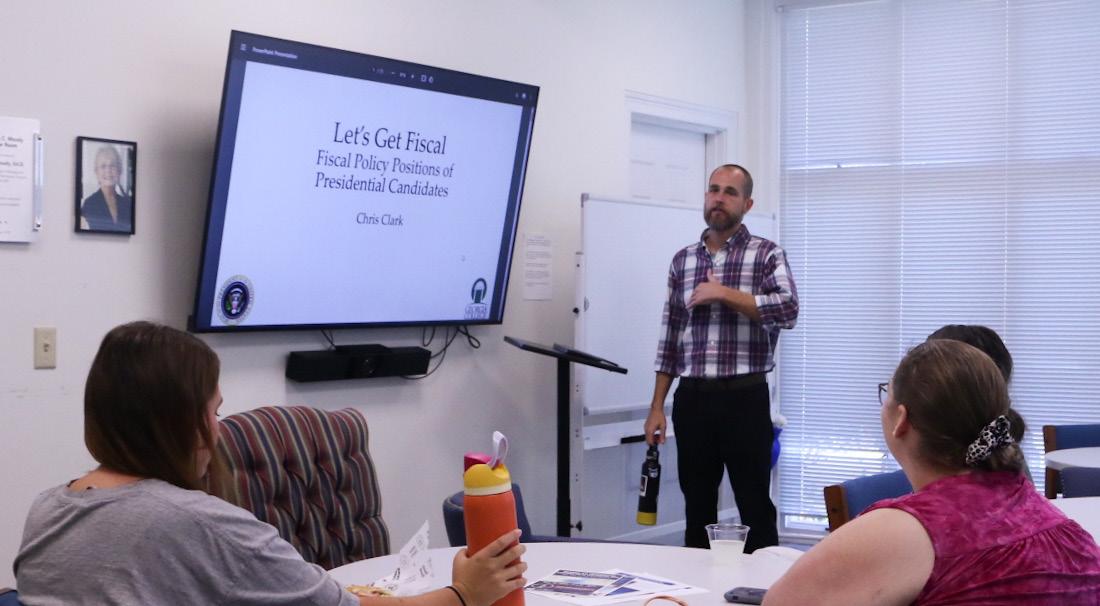
Before explaining the candidate’s fiscal policy, Clark briefly described the U.S.’s current budget components, such as its revenue and expenditures. With the two prominent candidates, Kamala Harris of the Democrat Party and Donald Trump of the Republican Party, Clark explained the top six policy changes each candidate plans to make.
I had seen it beforehand,” said Daniel Clark, a freshman finance major. Even with the simplicity of a seminar presentation, Clark’s fiscal policy presentation imparts essential knowledge that can ultimately affect the people of Milledgeville and the country.
“It helps everything make more sense,” said Carson Fricke, a freshman marketing major. “It gave us all the basic fiscal policies.”
Clark explained the potential taxes Harris intends to make, such as the Corporate Alt Mix Tax and increased Capital Gains Tax, while going more in-depth on the tariffs Trump plans to put in play.
Each slide in Clark’s presentation showed vital information to educate its viewers on the presidential candidate’s fiscal decisions they plan to make over their term in office.
“I often get invited to do it just because we want to inform voters,” Clark said, explaining how important it is to help inform voters, especially the younger ones of GCSU.
“I had already voted, but it probably would have changed my vote if
Clark will continue to give his fiscal policy presentation at each election and keep GCSU faculty, staff and students informed.
Chloe Sanders Staff Writer
On Wednesday, Oct. 23, the College of Business and Technology hosted a panel discussing salary negotiations in the job market. Panelists included Heather Edens, the Executive Vice President of Foust Bros, Barry Wolfe, a retired attorney and former director of Labor & Employee Relations at Dean’s Foods and Dairy Farmers of America and Dr. Aric Wilhau, an assistant professor of management at GCSU.
The panel began with a brief introduction of the members and an overview of what will be discussed. Subjects include current trends in entry-level jobs, salary expectations and tips on negotiating salaries in the job market.
Dr. Scott Manley, professor of management and chair of the Department of Management, Marketing and Logistics, hosted and
mediated the panel. He emphasized the importance of these panels and the positive impact they can have on students and future graduates.
“Panels like this are important because we can bring together experts from academia and business & industry experts,” Manley said. “This one was unique in that it also included someone [Wolfe] who has experience advocating for both labor and management. Because of that, he can give a broader perspective of the job market.”
The panelists also emphasized the importance of having a minor, a great option being management.
The group explored topics such as remote work, salary expectations and negotiations, and whether or not there are regional or global salary disparities. The panelists and Manley went on to talk about the importance of financial literacy, followed by discus-
Kate Verity.........................
Paige Blakemore............
Julia Jensen.......................
Shadimon Smith.............
Emma Eslinger................
Brennan Schmitz...........
Benjamin Clark...............
Kylie Rowe.........................
Mary Ciucevich...............
Delaney Derry..................
Isabella McComis..........
Matthew Malkowski.....
Rebecca Ocampo..........
Kassie Arps.......................
Eva Galova........................
sions about remote work.
Heather Edens highlighted the pros and cons of remote work when joining the workforce.
“You want them to
remote jobs. Although it is something that can be negotiated, being able to be in person and hands-on when starting a new job can be benefi-

know who you are, you want to get advice from them, you want them to see what you’re capable of,” Edens said.
Most employers are not looking to hire for

Editor in Chief Managing Editor Art Director News Editor
Asst. News Editor Sports Editor
Asst. Sports Editor
Arts & Life Editor
Asst. Arts & Life Editor
Opinion Editor
Digital Media Editor
Digital Media Editor
PR Manager
Ad Sales Manager
Faculty Adviser
cial not only to yourself but to your coworkers and higher-ups as well.
Wolfe emphasizes the importance of connections. One of the best ways you can re-
search for a position, look for a job or get advice is through word of mouth. People such as family, sorority sisters and fraternity brothers are great resources for students and alumni to use when job-seeking. He also highlighted a great resource we have here on campus, the Career Center.
When it comes down to negotiating salaries, there are other negotiations to be considered. Aspects such as quality of life, job perks, a hiring bonus, vacation time or tuition assistance can usually be negotiated.
After some productive and insightful discussions, the panel concluded with advice from the successful panelists.
“Have reasonable expectations and be willing to learn as much as possible,” Wilhau said.
In addition to advice about salary expectations, advice was also given about job interviews and how to
stand out as opposed to your competition.
“Be early, make eye contact and dress like you want the job,” Edens said. Panels like these are meant to help the students in the job market after college so they can be as successful as possible. GCSU hosts discussions and seminars outside the classroom to make sure their graduates are ready for what’s to come.
“I hope that students learned that they must develop a personal brand if they want to effectively negotiate in an entry-level position,” Manely said. “It is no longer enough to have ‘just a degree,’ because employers want to know how the potential employee will bring value to the company.”
As graduates prepare to enter a competitive workforce, the lessons learned from this event will undoubtedly help them advocate effectively for their value and succeed in their professional journeys.
@TheColonnade @TheColonnade

Contributing writers are always welcome at The Colonnade. Contact thegcsucolonnade@gmail. com for more information.
If you have a tip or wish to contact The Colonnade, email thegcsucolonnade@gmail. com or message our Instagram @thecolonnade.
The Colonnade is now primarily published online. Read at issuu.com/thecolonnade or on bobcatmultimedia.com.
Emma Eslinger Asst. News Editor
Early voting for the 2024 Presidential Election started in Georgia on Oct. 15 and continues until Nov. 1. As of Oct. 28, Georgia has surpassed 2.5 million votes.
“I am not surprised by the early voting numbers in Georgia due to the robust turnout we have seen in recent elections, and the popularity and convenience of early voting,” said Claire Sanders, a senior lecturer of political science. “In addition, Georgia is now a battleground state with strong party competition, which increases voter interest and voter engagement.”
In Baldwin County, 8,659 people have voted so far in the 2024 general election, which represents 29.7% of registered voters, according to the Georgia Votes website.
“I voted early last week, and since moving to Georgia, I have made a point always to vote early to avoid the risk of something preventing me from making it to the polls on Election Day,” said Kevin Spann, a lecturer of political sci-
ence. “As someone from a state, Alabama, with no in-person early voting and strict vote-bymail regulations, I advise Georgia citizens to take advantage of such generous early voting policies.”
Early voting has been on the rise since the early 1900s. When the United States was founded, voting was held over several days, giving people options on when to vote and what was convenient for them. Election Day itself is Nov. 5 and is the last day that Americans can cast their ballots in person.
Some are skeptical of the legitimacy of early voting, arguing that it is a way to get votes rigged, as they are not all cast at one time in a monitored place. With early voting, there can be a risk of losing ballots and miscounting. Early voting was taken away in 1845, due to these fears of authenticity, but the practice returned during the Civil War. Soldiers voted absentee and sent in their ballots while they were away.
Convenience is still a priority amongst voters, with more people early voting in-person and absentee bal-
It’s important to exercise your right to be heard.
-Derek Kim
lots in recent years.
“Regarding the importance of voting, the old political adage ‘If you’re not at the table, you’re probably on the menu’, always comes to mind,” Spann said.
“From tax policy to social issues, elections have consequences, and if students want to have influence over the direction of the nation, there are few states where their vote could be more impactful than Georgia.”
Many GCSU students voted early, whether it was in Baldwin County or their respective home counties. Derek Kim, a junior political science, philosophy and liberal studies major, expresses the importance of voting.
“It’s important to exercise your right to be heard,” Kim said. “You can have your disputes with the party system or the democratic pro-

cess, but at the end of the day, your vote is still counted, and no matter the results, it is the self-advocation for your personal platform that matters the most.”
Three questions asked on the Georgia ballot have received some backlash in the way they were worded. Some voters say that the wording is complicated and intentionally formatted to keep voters from being fully engaged in the decision-making process. Others say that voters just ought to research ballots and be prepared to encounter
complicated wording.
These three questions are in the sections Proposed Constitutional Amendments and Statewide Referendum Question. The first question is about Homestead exemption, the second is about a state tax court and the third is about a personal property tax exemption.
“It took a decent amount of research for me to understand what the questions actually asked,” Kim said. “In my opinion, it shouldn’t be expected that every voter does their due diligence.
Shadimon Smith News Editor
Milly Science Cafe partnered with the National Marrow Donor Program, or NMDP, to inform the people of GCSU about the process of donating bone marrow and blood stem cells to save the lives of people with blood cancer and disease. On Oct. 22, they hosted an event called the “Life Saving Match: How Your Bone Marrow Donation Can Make an Impact” in Allen’s Market on 101 W McIntosh St, Milledgeville, GA 31061 at 6:30 p.m.
The NMDP is a non-profit organization that has a worldwide registry with thousands of donors in hopes of helping patients diagnosed with blood cancers like leukemia, aplastic anemia and sickle cell anemia.
During the event, they had six tables set up for people to visit and learn about the different diseases, cancers, Human leukocyte antigen, or HLA type.
“So we have aplastic anemia, which is a genetic disease,” said Caroline Hardagree, a sophomore biology major. “
It’s a rare blood disorder where the bone marrow fails to produce enough blood cells, leading to
fatigue and increased infection and risk.”
To register to donate you must be between 18 and 40, a resident of the U.S. and able to meet the medical guidelines of NMDP.
to donating platelets or plasma, a process called apheresis,” said Melinda Garrington, an account manager in the member donor recruitment department. “That’s the most common. A doc-
under anesthesia for it. It takes about 30 minutes.”
You can swab your cheeks using the kits provided by NMDP, and your genetic type will be included in the search process for
immune system. When a patient with blood cancer gets a donation, the blood stem cells enter the body and start creating new cells that will replace the sick cells.
“Blood cells, once
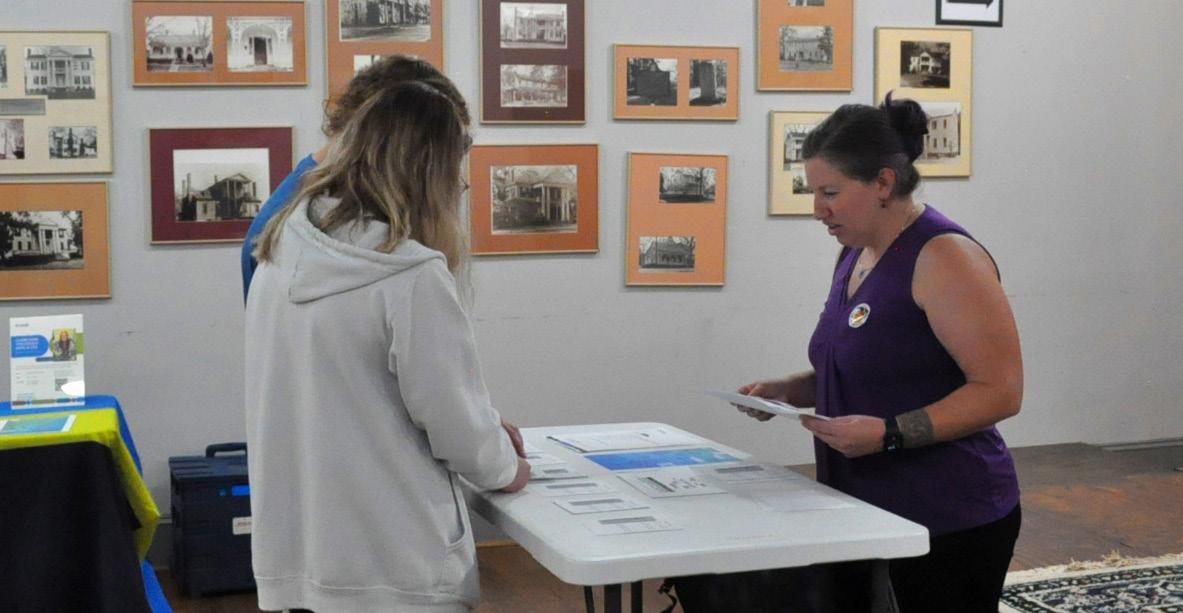

There are two ways to donate: one is through blood stem cells, and the other is through marrow donation.
“The most common and the preferred method is a stem cell donation, which is similar

Malkowski | Digital Media Editor
I do not believe the wording needs changing, but rather the awareness of what the questions are actually proposing.” The last day to vote for residents of Baldwin County is Oct. 29 from 8:30 a.m. - 5 p.m.. Residents can early vote at the Registration and Elections office on Monday- Friday from 8:30 a.m. - 5 p.m. and Saturday from 9 a.m. - 4 p.m.. Residents can go to baldwincountyga.com or My Voter Page to learn more about voting in Baldwin County.
don’t know what they’re going to be yet, and they’ll keep replicating and then start differentiating and replenishing all of the cells that you’ve lost over time, and so they’re incredibly important for everybody.”
When a donor is matched with a patient, the donor will be contacted by NMDP, and will be given shots of filgrastim to prepare your body for the donation.
The shots will be given five days leading up to the donation, and the last shot will be given on the day of donation. This medicine moves the blood stem cells from the bone marrow and into the bloodstream so they can be collected. The process is called Apheresis, and it involves a machine that separates the blood stem cells from the blood. Then, the machine returns the blood to the donor’s bloodstream.
tor might also request NARO, typically for an infant or a pediatric patient, and that is a 30-minute procedure done in a medical facility. They do use a needle to draw the marrow from the back. You’re
patients in need of a blood stem cell donor.
Blood stem cells are immature cells that can become any blood cell, like red blood cells or white blood cells. They divide to create new stem cells or cells that help the
they’re sort of mature, they die off pretty frequently, and we need to constantly replenish them,” said Kasey Karen, a biology professor. “So we have these stem cells that are what we call undifferentiated. So they
To join the registry to become a donor, go to the NMDP site and fill out the contact information, health information and emergency contact information. Then request a swab kit to be mailed and follow the instructions on the package and send it back. If matched, the NMDP will get in contact with the potential donor and cover all expenses related to donation.
Benjamin Clark Asst. Sports Editor
All across major cities in the United States, running clubs, or run clubs for short, have become extremely popular as a way for people to become more active in an era of increased idleness. The spark in run club participation and the foundation of more clubs has risen 25% in the past 5 years, according to the Offfield Journal.
Over the years, run clubs have expanded to more rural towns and cities, causing students in the running community to create local running clubs, which eventually led to recognition by the university.
The GCSU-sponsored running club “The Prowlers” meets in front of Atkinson Hall and runs anywhere from one and a half to three miles. Further information can be found on their Insta-
gram page @gcprowlers.
One of the major benefits of a run club is its regimented structure. Many larger run clubs will separate into different pace groups, offering those who run slower to not feel the need to keep up, and letting those who run faster not feel weighed down. Here, the structure of the run club offers more security to all people with different paces.
Among those who run with friends, experience in running can drastically determine how you exert yourself, with many runners wanting to be around people who generally run at the same speed as themselves. However, there can be benefits with running among those who are slightly faster, as it could allow you to become more motivated to keep up with their pace.
Montana Arnold, a
sophomore Spanish and political science double major, considered whether running with others encourages her to keep up, or discourages her from running altogether.
“I think it can do both things,” Arnold said. “When I’m running with good friends that I know well and can engage in friendly competition with, then yes, totally, 100%. When you have someone right there with you, it definitely helps to keep your pace. But if I’m ever with a guy who has like a 6-minute mile, it would definitely be a lot more discouraging.”
It seems a lot of students enjoy the friendly competition in running with friends. When considering joining a run club you should also look forward to the relationships you can make that can make you more motivated to increase your speed and
become a better runner. Anna Cruickshank, a sophomore marketing major, has opinions on how running with others increases her motivation to keep up.
“I think it would motivate me,” Cruickshank said. “I have run with other people and it makes me run faster just because I have to keep up.”
GCSU students in the running community seem to agree that overall, running with others typically has a positive effect on their own pace. This is recognized as the main reason that people participate in run clubs.
Among reasons like an increase in motivation, many in the running community join run clubs because they offer more security, social interaction, and exploration.
The exploration aspect of a run club allows those who join to discover many different parts of Milledgeville that

they might have never seen before. GCSU students recognize the pros and cons of running in Milledgeville and have differing opinions on whether the city is a good place to run or not.
“Yeah it’s very hilly, but I like it,” Cruickshank said. “I really like the Greenway. I also like downtown because it’s much more flat.”
Some areas of Milledgeville have many hills, which can act as a daunting challenge for many runners. The challenge of the city’s environment seems to drive some away from joining the prowlers. However, for many students, the safety of the city is also
Ryan Grant Staff Writer
GCSU’s Women’s Soccer team has had a very even season this year, with most of their matches ending in a tie. Outside of their three draws, the Bobcats have recorded a nearly even seven wins and six losses.
The team was expected to win sixth place in the Peach Belt Conference (PBC) this season. Of the top five teams, Columbus State University, the University of North Georgia, Flagler University and Lander University were all picked ahead of the Bobcats in the first five spots.
So far, the Women’s Soccer team has been beaten by all of the teams placed before them in the preseason rankings, other than Lander. Despite this, only two of the team’s losses were not predicted by the presea-
son PBC coaches’ votes, and they still hold five victories in the PBC.
GCSU’s 2024 season debuted on Frock
Georgia State University. Martin and Eison scored two more goals against Valdosta State University later on Sept. 14, con-
game on the Bobcat Soccer Field with both teams recording one goal.
Most recently, during October, the Bobcats
dling as the season progresses. With only two losses in October so far, and having taken care of the University
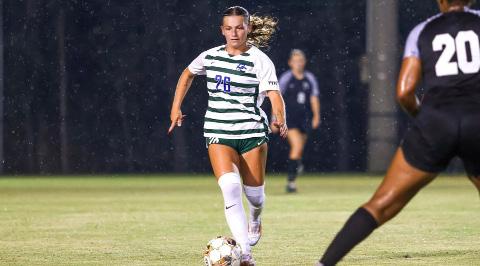
Field at Catawba College where the Bobcats pulled out a 2-1 win.
Two days later, on the same field, they lost 3-1.
At GCSU’s home field, forward/midfielder Ava Martin, midfielder Adrianna Duque, forward/ midfielder Abbey Eison and forward Ali Amrozowicz each scored a goal against Middle
tributing to a 3-0 win.
To finish off the month of September, the Bobcats took three more losses against Florida Southern College, No.1 Columbus State University and No.3 Flagler College.
Also, in September, GCSU tied non-conference Auburn University at Montgomery in their
collected three wins and only two losses. On Oct. 5, the team won against Christian Brothers College with a score of 4-1, then tied against Clayton State and the University of South Carolina Beaufort, with neither team recording any goals in their games.
Losses for the soccer team seem to be dwin-
of South Carolina Aiken 4-1, GCSU should be able to leave this split season in the past.
“It’s definitely going to get better,” said Taylor Salvaggio, a senior defender. “We played, probably, our harder games at the very beginning. Now, those teams are playing each other or teams that are even with us.”
a factor when considering joining the clubs.
“No, I don’t really like it,” Arnold said. “There are a lot of hills and stop signs and cars. However, I would say that it is somewhere I feel safe to run in if I’m running around/near the college.”
Overall, it seems students can go both ways about the difficulty of Milledgeville roads, however, the safety of the city seems to be a primary concern. Even though Milledgeville can be an intimidating environment to run in, it does not discourage those who wish to run locally, and it can prove to be an extremely rewarding challenge.
With the Bobcats’ final non-PBC game against Emmanuel University set for Oct. 30 being canceled, they have the opportunity to prepare with more rest to try to end the regular season with a win and propel them into the playoffs with momentum.
Salvaggio is confident about the rest of the season. Those close to the program seem to agree that the team has improved significantly, and now that the hardest part of the season is behind them, that improvement should start to show even more in games.
The Bobcats are back in action for senior day on Saturday, Nov. 2 at Bobcat Soccer Field against Georgia Southwestern State University to close out the regular season.
Emma Jow Contributing Writer
The beginning of the International Chess Federation’s (FIDE) International Chess Championship Final kicks off on Nov. 20 and will last until mid-December.
The match will be between reigning champion Ding Liren, a Chinese grandmaster, and the winner of the 2024 Candidates Tournament and Indian Grandmaster Gukesh Dommaraju.
The championship consists of 14 games.
“The player who scores 7.5 points or more wins the Match, and no further games are played,” according to FIDE. “If the score after 14 games is equal, the winner is decided on a tiebreak.”
Ding recently defeated two grandmasters, Norwegian Magnus Carlson and Russian Ian Neponmiachtchi, in thrilling head-to-head matches, putting him as many people’s favorite for the 2024 World Championship.
His upcoming opponent, Dommaraju, is the youngest challenger in the game’s history and is considered to be the underdog in this lineup by many spectators. At only eighteen years old compared to Ding’s 32, Dommaraju won five games and lost only one, placing him in the final by a half-point.
With this high-stakes, intensive world champi-
Continued from page 1
Ashton Jeanty, who many fans believe deserves the Heisman trophy, posted 1,248 yards with 17 touchdowns in just six games at the running back position.
Boise State fans were arguably the only people who knew how good Jeanty was, and even they could not have predicted the production he has given their program.
Boise State has had a relatively easy schedule, playing teams like Georgia Southern University and Utah State University.
What some may forget is that they played the University of Oregon, which is now the No.1 team in the country. They

onship on the horizon, chess is once again in the spotlight for even those who do not keep up with the game. A complex, strategy-based board game, chess has an estimated 605 million players worldwide and has been played for centuries. Despite its widespread popularity, many still question whether it qualifies as a sport or not.
Chess is recognized as a sport by the International Olympic Committee, which, in theory, could be evidence of its validity. Similarly, over 100 countries recognize chess as a sport, including the United States.
Many people, however, hold firm in their belief that chess is only a game.
“I don’t really think chess is a sport,” said Milly Peta, a sophomore economics major.
“I think of a sport as something very physical, and chess doesn’t seem that physical.”
Many sports are based on athletic capabilities and prowess, while chess is focused mainly on logical, mental or strategic capabilities, skills which are far more commonly associated with games. Recent studies, however, have exposed the falsehood of the assumption that chess lacks physical effort.
“A chess player can burn up to 6,000 calories a day while playing in a tournament,” reports an article by sports news station ESPN.
“Grandmasters sustain elevated blood pressure for hours in the range found in competitive marathon runners,” said Robert Sapolsky, who studied stress in primates at Stanford University.
The ESPN article, titled “The grandmaster diet: How to lose weight while barely moving,” goes on to determine that the average competitive chess player

lost a very close game against the Ducks, but Jeanty ran for 192 yards and three touchdowns.
In the first game of his season, Jeanty ran for 267 yards and six touchdowns against Georgia Southern. That stat line was thought by many to be a fluke, but he has backed up his talent all year.
Some fans and analysts
Courtesy of Julia Jensen | Art Director
are giving Jeanty comparisons to Barry Sanders, the 1988 Heisman winner and Oklahoma State University product who is widely considered to be the greatest college running back of all time.
“I have never seen a guy run the ball at the collegiate level like Ashton Jeanty,” said Trey Pratt, a junior business
will lose two pounds per day during a game, or 10-12 pounds over a 10-day tournament.
Despite the fact that players remain seated for the duration of a chess match, it is evident that professional chess has demands equivalent to that of many universally recognized sports, such as running.
There are a few key differences, however, between the physical exertion associated wit chess and other physical activities. Weight loss and high blood pressure during intense exercise are caused by elevated heart rates associated with cardio and endurance. Weight loss and high blood pressure in chess, however, are largely caused by mental stress. Losing weight cannot always be equivilated with positive physical health.
During a professional chess game, high levels of stress cause elevat-
major. “The way he lines up in the backfield standing straight up has to look intimidating for opposing players.”
Travis Hunter came into this season as the talk of college football. He is an elite wide receiver as well as a cornerback. He is one of the only two-way players in college football and is excelling at both positions.
He has 51 catches, along with 604 yards and six touchdowns on the offensive side of the ball. On top of that, he has been playing stellar defense, shadowing opponents’ top receivers. This is Hunter’s second year playing for Colorado and third year being coached by Deion Sanders, one of
ed heart rate, which in turn often lead to a loss of appetite. A professional chess player eats significantly less during a tournament than in their day-to-day, due to a lack of free time, loss of appetite and intense focus for hours at a time during a game that cannot be broken for eating. Similarly, in-game anxiety can lead to sweating or rapid breathing, which over many hours or days, can contribute to incremental calorie loss.
Additionally, it is important to note that, unlike many sports, chess poses practically no risk of injuring oneself. In sports such as running, high impact and intense, acute muscular strain puts athletes at high risk of physical injury. In high contact sports like soccer or rugby, athletes risk dangerous falls that can lead to broken bones, concussions or even long term damage. Chess, in harsh contrast, needs no muscular strain and demands no contact with a competitor.
When presented with information about the physical demands of chess, Drake Wood, a sophomore political science student, reconsiders his stance when taking into account the new information. Though he originally doubted chess could qualify as a sport, upon learning of the physical changes
the most successful and influential two-way football players of all time.
Hunter was a former five-star prospect who followed Sanders to Colorado after choosing to go to Jackson State University, where Sanders used to coach. There has been talk for Hunter’s entire college career about how he needs to select one position that would lower his chances of injury.
Still, Sanders has continued to tell the media that he will continue to play Hunter on both sides of the ball. He could be a first-round draft pick as a receiver or a cornerback.
many grandmasters see throughout competition, Wood reevaluated.
“In that case, I do think chess is a sport,” Wood said. “Before, I thought it was just like a puzzle. But I didn’t know it burned so many calories.”
This seems to be the common opinion amongst GCSU students. Mackenzie Pepitone, a freshman graphic design student and recreational chess player, initially had negative remarks on chess classifying as a sport.
“Chess is not a sport because for something to be a sport your whole body should be moving,” Pepitone said. “It’s a great game, but not a sport.”
However, after learning about the calories burned and weight lost during a professional chess match, students have differing opinions.
“Maybe it is a sport, then,” Pepitone said. “I knew it was hard mentally, but not physically.” In the end, it is up to the individual to decide whether or not they consider chess a sport. The consensus amongst GCSU students, however, seems to be that leisurely, non-physically taxing chess is not a sport. Competitive, physically demanding chess, however, is seen as more of a sport when students learn the physical impacts of stress and pressure on the players.
“Watching Travis Hunter play is unbelievable,” said Griffin Taylor, a sophomore marketing major. “He can do everything. I don’t know how an opposing coach can scheme against a guy like that.”
With plenty of time still left to play in the regular season, Ward, Jeanty and Hunter, as well as any other players that may try to make a late push for the award, will continue to go out there on Saturdays and prove why they should be honored as the best player in college football.
Hunter may not have the stats that some of these other contenders have, but the fact he is playing both sides of the ball as a D1 athlete at such an elite level is something that cannot go unnoticed.
Kate Briesmeister Staff Writer
Netflix recently released the second part of a series titled “Monsters” that tells the story of the Menendez family murders. This season depicts brothers Erik and Lyle Menendez who shot and killed their parents in 1989, when they were 18 and 21 years old. They are both currently serving lifelong prison sentences, but recent publicity, largely a result of this series, has sparked rumors of a chance of a repeal or change to their sentencing.
The Menendez brothers maintain that they suffered extreme abuse from their parents, which is what led them to believe killing their parents was the only way out. According to Erik and Lyle, they were both sexually abused by their father with their mother’s knowledge from the age of six until the year of the murders.
The story is told in great detail with extreme romanticization. The story is told in a format that depicts what the brothers say happened and highlights some common theories about the case. Some believe that the show grossly sexualizes the brothers and their story, and others believe that the brothers deserve to be released after watching the case explained.
“The series tells such an intense and sad story where you cannot help but feel bad for the Menendez brothers,” said Chandler Chung, a senior nursing major. “I still think that the series wrongly portrayed some of the abuse but the brothers deserve to be released. The series definitely helped bring attention to the case, and hopefully, that will help get Erik and Lyle free.”
According to ABC News, the Menendez brothers’ attorney, Mark Geragos, seems to have high hopes about getting the brothers’ ruling overturned and reportedly expects to see them home by Thanksgiving. Family members of the brothers have been pushing for a resentencing for years.
“When I watched this show, it genuinely felt fake due to how insane and upsetting it was,” said Ol-
Many “Monsters” fans who saw the brothers; story have been pushing for resentencing and are unwilling to give up the fight. But other viewers stand that making the brothers serve their full life sentences is fair because of how pre-meditated the murders seem to have been.
“I have watched the Netflix series on the Menendez brothers, and it is truly disheartening,” said Kendall McCabe, a freshman biology major. “No one deserves to deal with even a quarter of the abuse that the Menendez brothers were dealt. With that being said, I still do not think that murder is ever the answer and I think the brothers should remain in jail to complete their sentences. The show brings awareness
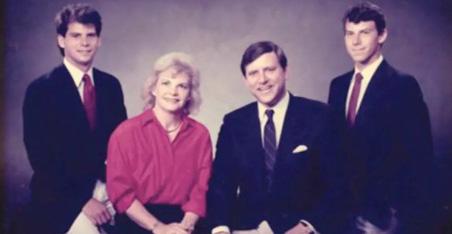
ivia Peters, a junior mass communication major. “My heart breaks knowing that Erik and Lyle both had to deal with such bad abuse for years on end from two horrible parents. I really hope that their sentencing is overturned because they were young when they committed the crime and also did not know better on how to get out of the abuse they were facing.”
Mary Ciucevich
Asst. A&L Editor
GCSU’s International Club hosted its annual “International Fest” on Wednesday, Oct. 23, on front campus. The event showcased the different countries represented by international students at GCSU.
“We have a large amount of international students, and I’ve gotten to work close hand with a couple of them through my seminars with the freshman international students, so it’s been really cool to learn about them,” said Lily Harris, a sophomore English major. “ I feel like it’s just a way to culture yourself in a way that not all colleges get to, ‘cause not all colleges offer international programs.”
The Fest opened with a presentation of flags, during which each international student introduced themselves, their country and a fun fact associated with their country. Once the introductions concluded, the international students, as well as other GCSU organizations/clubs, started tabling for their
respective countries.
Students, faculty and locals had the opportunity to walk around to each table, ask questions and learn something new about a country.
Each international student’s table had a poster board that included pictures and information relating to their country, food/snacks or objects they brought from home.
“I feel like learning about other people’s cultures helps us come together more,” said Talia Nichols, a senior English major. “For me, I’ve never been out of the country, so learning about a different culture kind of makes me wanna go outside the country to see all these nice places and try different foods and drinks.”
The tabling displayed 25 countries, including Australia, Peru, Spain, Germany, France, Zambia, Italy, South Korea and more.
For this event, the GCSU International Club collaborated with the Student Government Association (SGA) which hosted a coffee and hot cocoa table and provided donations for
the club’s giveaway. This giveaway featured cups and tote bags with the GCSU International Club’s logo and was given away to attendees who correctly answered a question drawn randomly about another country.
As well as the SGA, other student organizations participated such as the French Club, the Spanish Club, the Geography Club, GC Hillel, Delta Gamma and Phi Kappa Phi. Also present were some of the GCSU departments such as the Offices of Sustainability, Study Abroad and Student Engagement.
“We have such a great turnout of different student organizations that pull out and want to participate, that’s exciting too, that says a lot,” said Susie Ramage, international admissions counselor at GCSU.
The Fest featured music and games, like cornhole and snacks, from both the international students as well as the GCSU Student Engagement who provided popcorn. Appearances were made by the Chick-fil-A cow mas-
to abuse, but the show overall seems to sexualize the story and make it something that it is not in a sense.”
A retrial is up in the air as many anxiously await to hear the verdict. Many viewers remain hopeful that the brothers will be returned home as soon as possible, while others hope they remain where they have been for the past 35 years.
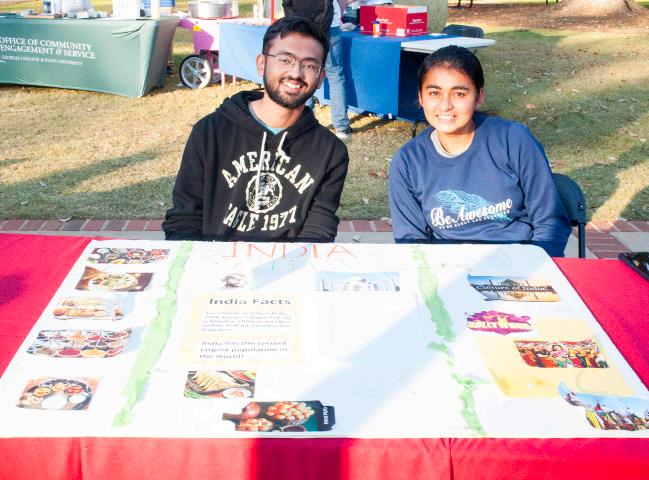
cot and GCSU’s own mascot Thunder, who brought both the Bobcat school spirit as well as the Halloween spirit, dressing up in a pumpkin costume to the event.
The event concluded with a dance performed by three of the international students, followed by a group photo to capture the international students present this semester.
The International Club aims to spread the cultures of international students to domestic students, faculty and any locals who may have attended the event. The club also intends to spread the appreciation of others while also promoting the learning of other cultures at GCSU.
“It’s the breaking
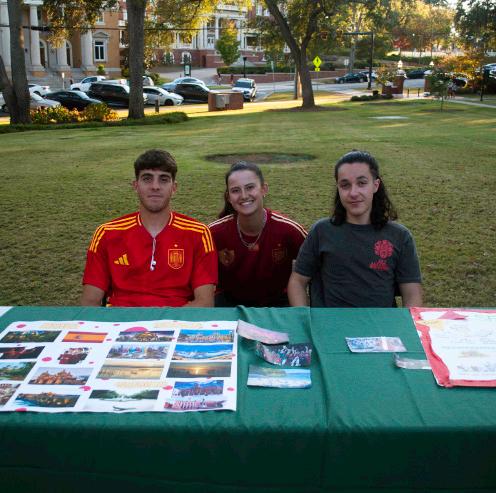
down the barriers, the understanding of what it’s really like, there’s a lot of things that we have preconceived notions about,” Ramage said.
The International Club and the International Education Center continue to make students and locals aware of the importance of global education and the sharing of cultural differences, especially in
the GCSU and Milledgeville communities.
“Whoever comes, whether it’s a community member, faculty or staff or student, they walk away knowing something they didn’t know before globally,” Ramage said. “Which is really important cause this generation is our future generation that can make a difference and can make a change.”
Continued from page 1
Maggie Standard, a senior museum studies major and docent for the museum, helps lead these specialty tours, working to recreate the atmosphere of the time period and explaining death practices that may feel unusual or unsettling to modern audiences. For instance, visitors will encounter customs like the covering of mirrors and clocks to avoid summoning bad spirits, a practice rooted in the superstition that reflective surfaces might trap the deceased’s spirit or bring bad luck.
Another unique aspect of the tour, according to Standard, is learning about the Victorian tradition of post-mortem photography, in which families would pose the deceased for portraits to preserve their memory. These customs served as expressions of mourning but also revealed the 19th-century approach to coping with loss and maintaining connections to loved ones who had passed away.
“We find these practices disturbing,” Standard said. “But it was how they dealt with grief at the time.”
Visitors can expect
to learn about how race, class and age impacted these rituals. As Standard explained, these factors greatly influenced funeral practices, with stark differences in how enslaved people and wealthy plantation families were treated after death.
“At Georgia’s Old Governor’s Mansion, we strive to tell the whole story of what happened here, who lived here and how these different aspects of history connect to each other,” Schulze said.
The commitment to historical accuracy brings a level of depth and respect to the tours, giving visitors a fuller picture of life and death during this era.
“For those that were enslaved, we do not necessarily know where they were buried, as many enslaved graves were marked with pieces of wood or rock at Memory Hill,” Schulze said. “It’s important to bring their stories to the public’s attention through tours like this to raise awareness and learn about all aspects of our history.”
The Death After Dark tour is a special event on the Mansion’s calendar, one that has grown in popularity over the years and become an an-
Molly Goff Staff Writer
At GCSU, students navigate a delicate balance between dressing nice for class and looking like they just rolled out of bed. From athleisure to casual wear, students have admitted their anxieties about fashion, though opinions vary on whether anyone truly notices.
“The best part about college is that you can totally reinvent your style,” said Seventeen Magazine. “It doesn’t matter who you were in high school, because this is a totally fresh start.”
This sense of freedom to redefine personal style is reflected in the diverse range of outfits seen on GCSU’s campus, where comfort and individuality often take precedence over strict fashion rules.
“I always notice other people’s outfits,” said
nual tradition for some Milledgeville families and students. Standard noted that the seasonal timing makes the tours particularly appealing, especially as residents and visitors are looking for Hallow-
of our general tours.”
According to Standard, the tour’s atmosphere often prompts visitors to ask if the mansion is haunted, a question that reflects the intrigue surrounding old historical sites, espe-
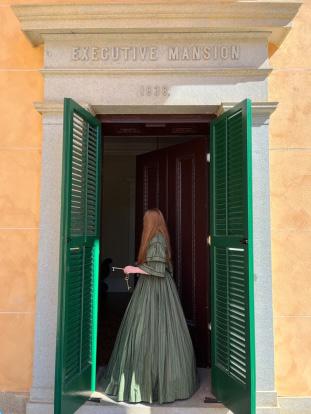
een-related activities.
“Our seasonal tours around Halloween and Christmas are our most popular times of the year,” Schulze said. “During these times, the Mansion is decorated accordingly and provides a unique experience for our guests as they get to see the Mansion in a different way and learn about subjects that are not the central topic
ine history surrounding the mansion is even more captivating than potential hauntings, offering insight into a world where death was a familiar part of life and where mourning customs were passed down through generations.
Leading a specialty tour like Death After Dark required considerable preparation, especially because it covers material that differs from the mansion’s normal historical tours. Tour guides must familiarize themselves with new information each year and maintain a brisk pace to keep the tours on schedule.
“Preparation for specialty tours really lies in understanding the new material presented to your audience,” Standard said.
of starting on time.”
Beyond its seasonal appeal, the Death After Dark tour serves an educational purpose, bridging the past with the present and helping visitors understand the ways 19th-century practices influenced how people view life and death today.
“Death practices of the 19th-century were indicative of the societal and cultural norms of the time,” Schulze said. “There were different expectations for women and men regarding death practices and mourning. Mourning clothes were worn by both men and women when a loved one passed away. However, women were supposed to mourn two and a half years, while men were expected to mourn for three months.”
Jackson Austin-Cruse, a sophomore biology premed major. “Fashion is an extension of a person’s personality. If I don’t vibe with their style, there’s a good chance I won’t vibe with a person, and that’s okay! But fashion is a first impression.”
First impressions can go a long way and expressing one’s personal style to meet new friends is a common strategy.
“I have multiple campus crushes on people who have cool style and have made most of my friends due to walking up to them and talking about fashion,” said Lulu Whitener, a sophomore psychology major. “I love seeing people express themselves, even if it’s not in the way I do. For instance, I usually wear all black and prefer a gothic style, but one of my best friends wears all pink. I love that our campus inspires individuality.”
Individuality is important on campus to create a diverse student body that is accepting of people showing who they truly are. Sometimes that happens to be the comfiest outfit on campus to get through that one test everyone has been dreading.
“For class, I definitely prefer a mix of comfy and cute, maybe a cute sweatshirt and leggings,” said Ella Mundy, a sophomore psychology major. “I love seeing what other girls are wearing so I can kind of stay in the loop and get inspo. When I’m not in class, my outfit depends on the day, but I usually wear a similar style, just not as put together. If it’s a weekend, I will probably be wearing a T-shirt!”
Weekends are a whole different story compared to the calm weekday life on campus. Students may choose to have a night in with pajamas or prepare for a night out in their most stylish outfits.
“I typically don’t wear different clothing on the weekends,” said Austin-Cruse. “The only
cially during Halloween.
“We always answer with ‘not that we know of,” Standard said. “For this tour specifically, there are few questions since most of the guests seem to be too enthralled to ask. The reactions of guests vary for the tour. Some are grossed out about certain details shared in the tour, and others are interested.”
For many, the genu-
main difference is whenever I go downtown, I’ll dress differently. From there- again, I’ll pick out one piece, like a rhinestone tank top, a mesh shirt, a nice jacket and then pair the rest of my outfit to highlight that one piece. Since it’s getting colder, I’ve been a fan of wearing really larger, over-exaggerated clothing.”
From casual athleisure during the day to polished looks at night, what students wear often reflects both their mood and the demands of a busy day.
“Outside of class, I’m usually more formal but also more out there,” said Whitener. “I’ll wear more jewelry, such as spiked chokers or my layered crosses, because those aren’t functional in a psychology lab. Beyond that too, I’ll also do more impulsive things like wear pieces that don’t quite match, like mesh and lace, or wear my five-inch platforms because it’s always fun to be taller than the men around you.”
Practicality, comfortability, and the true
The docents must not only stay on top of historical content but also ensure that the experience runs smoothly for all groups attending.
“Successful specialty tours can rely heavily on timing because the three tours happen one after another,” Standard said. “If a tour guide gets off time, then the next tour could potentially start late, which is usually never a problem since everyone on our team knows the importance
essence of oneself are what matters when dressing for school. Yes, school is the place for academic success but col-
The experience not only gives attendees a look at Victorian funeral practices but also helps people understand the emotions and coping mechanisms that shaped the century’s approach to death.
“Most are shocked at some point,” Standard said. “But by the end of the tour, they really understand how people of the time felt, and are able to find sympathy even for their ‘outrageous’ practices.”
comments about what I wear, and honestly, it doesn’t have any weight to me. If you like how you look, that’s literal-
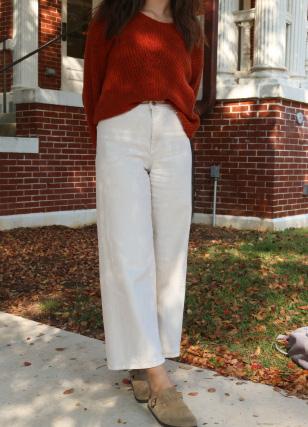
lege is the time to try new things, outfits included.
“Fashion is a great way to play around with your aesthetic or sense of self,” said Austin-Cruse. “Like if you don’t like one outfit, it’s not the end of the world, and you learned what doesn’t work for you. You can move forward and try something new. A lot of people have
ly the only opinion in the world that matters.”
Dressing for class allows students to balance comfort and personal style, fostering confidence and individuality on campus. As students embrace diverse fashion choices, they contribute to a vibrant, inclusive community where self-expression thrives.
Continued from page 1
I think it’s funny to think about what I would do if I were in a situation like the kids from “It” where a killer clown was terrorizing my life. I would simply leave. I would stay away from the sewers and move towns.
Why do people in scary movies feel the need to stay in their house when, for exam-
ple, a paranormal being says “get out” or “go away”? Personally, I’m out. My bags are already packed, and the only traces left of me are some tire tracks and dust in the wind. Fortunately, some other sane GCSU students agree.
“I think I would survive because I would run away the first time something happened,” said Andrew Carey, a junior business major.
Now, thinking about it from the perspective of being chased or attacked, I do think I would fight back. Perhaps I am delusional, but I feel as though I would think of some clever way of getting out of a situation and defending myself. It truly is all about fight or flight.
I don’t really watch a lot of scary movies. I don’t dislike them, but when I watch them, I think about them
Delaney Derry Opinion Editor
Haven’t you ever wanted to just pack your bags and take the next flight to see the Broadway lights in New York City or watch the sunset on a beach in Greece? What if we all did more things like that? What if we threw caution to the wind and said forget about our responsibilities, let’s go on an adventure.
Is being spontaneous really that easy? Just packing your bags and seeing where the wind takes you?
I think dropping everything to go on an ad-
start drawing all these conclusions on whether or not the decision we’re making is logical. We think of all the factors that come into play. When I say spontaneous, I do not mean impulsive. There is a very distinct difference between the two, and impulsivity generally has a negative connotation to it. To be spontaneous is to freely let natural feelings and instincts dictate your decisions, and impulsivity is to give in to an urge that is not governed by reason.
For example, say a person is walking on the
How many people can say they went to New York for 24 hours with their college friends on a random Tuesday?
-Grace Arnold
venture is not that easy, and maybe not even that simple, but that doesn’t mean you’re not spontaneous. More often than not, we overthink when it comes to making decisions in the moment. We have this feeling that just compels us to agree with anything, and then, our mind starts racing. We
beach. They may, all of a sudden, spontaneously take off their shoes and run clothes and all into the waves. But, someone who acts impulsively may see a jellyfish in the sand and just touch it. Spontaneous does not mean harmful, but I think a lot of people have a hard time telling the difference
way too much and get really paranoid.
I like to think of spooky movies more like “Scooby-Doo.” I love the spooky and mysterious aspects, but the life-threatening aspects. Although thrilling, fear is not very enjoyable to me. I like the idea of the monster just being some guy terrorizing civilians in a costume but once unmasked is revealed to be a random car sales-

man named Bob, not some knife-wielding maniac who turns out to be a true psychopath.
So, during this spooky season, consider while watching your next
between spontaneousness and impulsiveness.
So, do you think you are a spontaneous person?
“I feel like it depends on the situation,” said Madeline Marx, a junior marketing major. “If it is an important decision, I am not, but if I am just hanging out with someone, then we don’t need to make a plan. We’ll just hang out and do whatever. Who knows what could happen.”
Instead of dwelling on our decision-making, what if we just let things go unplanned and go with what feels natural? Instead of worrying about whether this is the best decision, what if we just thought it was a good decision?
Last week, senior graphic design major Grace Arnold and her friends took a spontaneous trip to New York City. She said her unplanned adventure was one of the best experiences of her life.
“I think this trip was important to me personally because I’m not a naturally spontaneous person and this year, my senior year, I’ve committed to being more spon-
horror movie how you might feel if the things you saw on screen were actually happening and if it still just seems just like spooky, scary fun. Scream
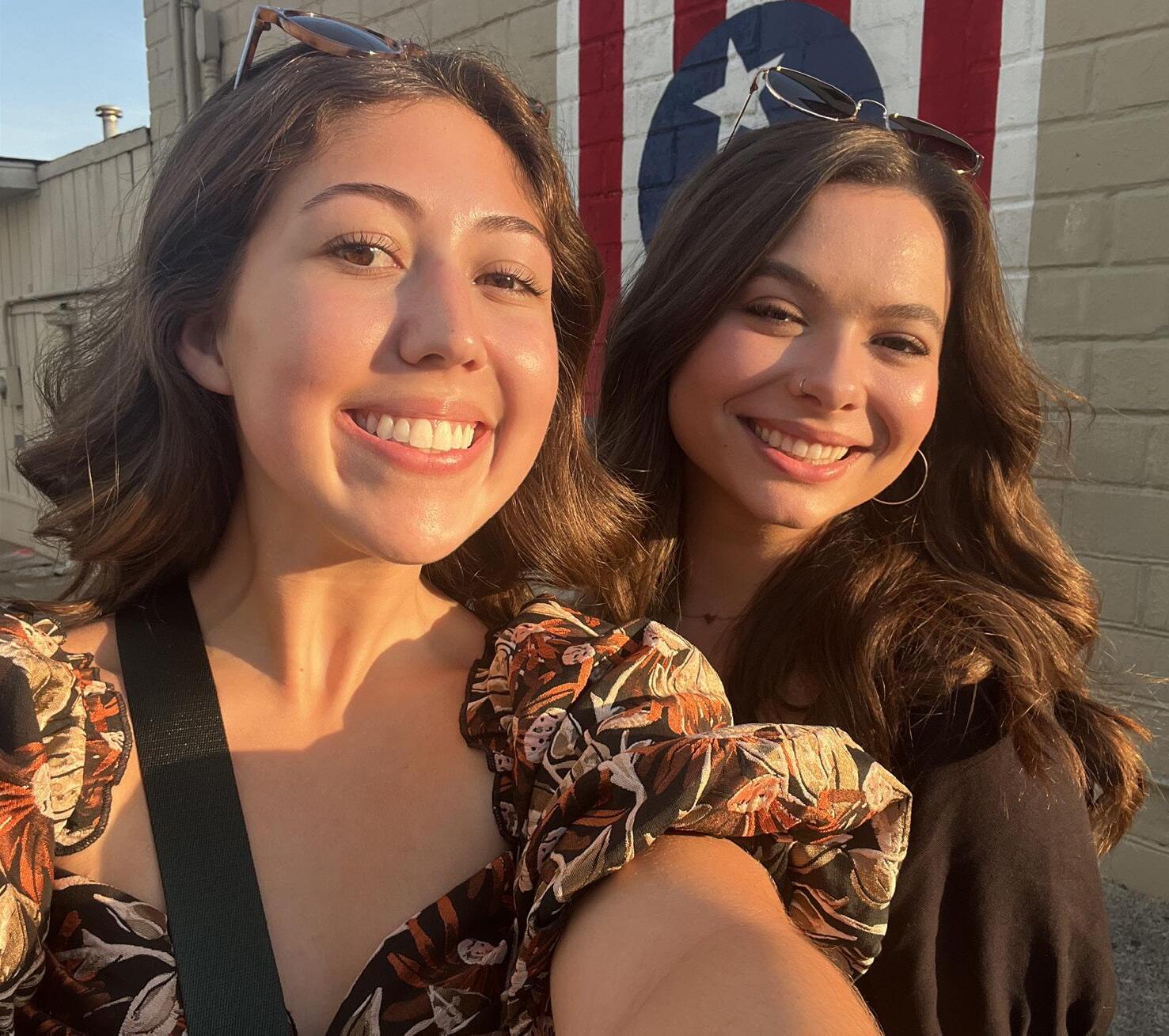
taneous,” Arnold said. “The trip was a testament to that commitment and is what made it truly memorable. How many people can say they went to New York for 24 hours with their college friends on a Tuesday?”
I think people take a step back from being spontaneous because it can seem scary to make an in-the-moment decision. I think we think about the future way too often and don’t focus enough on the present.
Yet, a question still remains: Would we benefit more from repressing those thoughts and leading our lives more spontaneously?
“In fact, when we suggest that someone act more spontaneously, what’s implied is that
it would benefit them to adapt more readily to changing circumstances--in a word, become more flexible,” said Dr. Leon F Seltzer, a psychologist for Psychology Today. “In a sense, we’re telling them to trust themselves more, to have more confidence in their ability to appropriately do something without first having to mull it over.”
Maybe, then, the question isn’t “Are you spontaneous?” but “Do you want to be more spontaneous?” In short, my answer would be yes.
I recently made the spontaneous decision to go to a concert with a friend. She asked me last minute to join her in seeing Maggie Rogers in Nashville the night before the show. I threw all my worries away, blew off getting ahead on homework and spent the next 24 hours driving to Nashville, going to the concert, then driving all the way back to Milledgeville to get to work.
Living a spontaneous life can look as simple as putting down your homework and picking up your friends in the middle of the night to go get ice cream, or it could be as extreme as deciding to call out of work and go on that beach trip you’ve been putting off for months. Being spontaneous can lead you to be more flexible and adventurous. Instead of thinking “How will this impact my future?” let’s think of it as “What memories can be made from this?”
